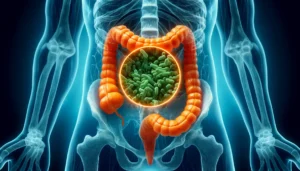The Ketogenic Diet for Autism Management
The ketogenic diet for autism is gaining attention as a promising approach. Traditionally used to manage epilepsy, this diet is now explored for its potential in autism spectrum disorder (ASD). It shifts the body’s energy metabolism, offering possible neuroprotective benefits. These benefits are crucial for managing ASD’s complex symptoms. This article will outline the basics of ASD, the principles of the ketogenic diet, and insights from recent research on this connection.
Understanding Autism Spectrum Disorder (ASD)
Autism Spectrum Disorder (ASD) is a complex developmental condition. It primarily affects social interaction, communication, and behavior, displaying repetitive patterns. Globally, ASD impacts over one in 100 children. In the United States, it affects as many as one in 36 children. This condition challenges not only social and communication skills but also involves biological complexities, such as immune dysfunction and increased inflammation.
Children with ASD often have elevated levels of pro-inflammatory cytokines. These levels correlate with the severity of ASD symptoms. Many also experience unique T-cell activation and prevalent gastrointestinal issues. These symptoms suggest a disrupted gut microbiome, which could impact the severity and manifestation of the disorder.
Understanding ASD’s neurological and immune system interactions highlights the potential of dietary interventions. The ketogenic diet, for instance, might address these underlying issues to improve symptoms. The next sections explore how this diet works and what science says about its benefits for ASD.
Children with ASD often have elevated levels of pro-inflammatory cytokines, which correlate with the severity of ASD symptoms. Many also experience unique T-cell activation and prevalent gastrointestinal issues. These symptoms suggest a disrupted gut microbiome.
The Science Behind the Ketogenic Diet
The ketogenic diet is a high-fat, low-carbohydrate eating plan that significantly alters how the body processes energy. By restricting carbohydrates, this diet forces the body into ketosis, a metabolic state where fats provide most of the energy. This shift not only impacts metabolism but also has potential neuroprotective effects, which are particularly relevant for neurological disorders like autism spectrum disorder (ASD).

A key component of the ketogenic diet for ASD is the inclusion of medium-chain triglyceride (MCT) oil and a strict limitation on gluten. These modifications help tailor the diet to meet the specific metabolic needs of individuals with ASD. MCT oil, for example, contributes to 20% of energy needs in the diet, supporting sustained ketosis with potentially fewer side effects than other fats.
In ketosis, the body produces ketone bodies, which can cross the blood-brain barrier and provide an alternative energy source for brain cells. This alternative energy can help stabilize neuronal function and reduce brain inflammation, a common issue in ASD.
Understanding how ketosis influences brain chemistry is crucial for evaluating its potential benefits for individuals with ASD. The diet’s impact on the gut-brain axis and its ability to modify gut microbiota may also play a significant role in alleviating some symptoms of ASD, as discussed in upcoming sections.
The shift into ketosis not only impacts metabolism but also has potential neuroprotective effects, which are particularly relevant for neurological disorders like autism spectrum disorder.
These changes suggest that the ketogenic diet might influence brain function and behavior in children with ASD by altering metabolic pathways and reducing brain inflammation.
Broader Benefits
The ketogenic diet’s potential extends beyond basic metabolic changes, impacting broader neurological and behavioral aspects of autism spectrum disorder (ASD). Two pivotal studies from 2021 and 2022 provide further insights into how this diet can significantly benefit individuals with ASD.
Nutrition Effect on Autism Spectrum Disorders
Conducted by E. Başkaya and colleagues, this study focused on the impact of various diets, including the ketogenic diet, on ASD. The research highlighted the potential benefits of the ketogenic diet, particularly for children with both autism and epilepsy. Significant improvements in cognitive functions and behavioral traits were reported after implementing the diet. The study states “Following the diet, several benefits have emerged, including reversing morbid obesity and cognitive impairment and improving behavioral traits.”

Further, the results were not only immediate but also long-lasting “A few years after following the same diet, the child’s [autism rating] score dropped from 49 to 17, which changed his condition from severe autism to non-autistic, and his IQ score increased by 70 points.”
These findings underscore the ketogenic diet’s impact on neurological health, possibly through changes in the gut microbiota and the microbiota-gut-brain axis, which play critical roles in ASD.
“A few years after following the same diet, the child’s [autism rating] score dropped from 49 to 17, which changed his condition from severe autism to non-autistic, and his IQ score increased by 70 points.”
Ketogenic Diet as a Dietary Intervention via Gut Microbiome Modulation
J. Lim and colleagues conducted this study, further exploring the ketogenic diet’s broader applications, particularly its effect on neurological conditions such as ASD. The study emphasized the significant relationship between the gut microbiota and brain function, suggesting that dietary-induced changes in the gut microbiome can mitigate ASD symptoms. The research findings indicate: “It has been also observed that the KD in children increases IQ scores and decreases the Childhood Autism Rating Scale score.” These observations align with the hypothesis that modifying the gut microbiota through diet can influence neurological functions and offer therapeutic benefits for autism.

Together, these studies highlight the ketogenic diet’s potential to not only alter metabolic pathways but also improve cognitive and behavioral outcomes in children with ASD. These studies support the growing belief that dietary interventions can provide significant benefits in managing and potentially improving symptoms of neurological disorders.
These studies support the growing belief that dietary interventions can provide significant benefits in managing and potentially improving symptoms of neurological disorders.
Practical Considerations and Challenges
Implementing the ketogenic diet for children with autism spectrum disorder (ASD) involves several practical considerations and potential challenges. This section discusses key aspects to keep in mind and offers guidance for families and caregivers considering this dietary approach.
Tailoring the Diet to Individual Needs
The ketogenic diet must be carefully customized to each child’s specific metabolic requirements. This process often involves collaboration between healthcare providers, including dietitians and pediatricians, to ensure that the diet is nutritionally adequate and safe. Factors like age, weight, and specific health needs play crucial roles in the diet’s design, particularly in determining the right balance of fats, proteins, and carbohydrates.

Monitoring and Maintaining Ketosis
Achieving and maintaining ketosis is critical for the ketogenic diet’s effectiveness in managing ASD symptoms. Regular monitoring, typically through urine or blood tests, is essential to ensure that ketone levels remain within a therapeutic range. Caregivers need proper training and tools to perform these tests accurately at home.
Dietary Compliance and Challenges
The ketogenic diet is restrictive and significantly different from typical dietary patterns, which can make adherence challenging, especially for children. Families may face difficulties in meal planning and overcoming the child’s resistance to unfamiliar foods. Support from dietitians in creating appealing, varied meal options can help increase compliance.
Potential Side Effects
Like any significant dietary change, the ketogenic diet can cause side effects. These may include constipation, low blood sugar, or nutrient deficiencies if not properly managed. Continuous medical supervision is crucial to address these issues promptly and adjust the diet as necessary to mitigate risks.
Importance of Professional Guidance
Given the complexities and potential risks, it’s imperative that families interested in trying the ketogenic diet for ASD do so under strict medical supervision. Healthcare professionals can provide ongoing support and make necessary adjustments based on the child’s response to the diet.
The decision to implement the ketogenic diet should involve careful consideration and planning. While the diet offers potential benefits, as evidenced by recent studies, its success largely depends on individual factors and the ability to manage the diet’s requirements effectively.

Key Takeaways
The ketogenic diet for autism presents an intriguing option for managing symptoms associated with autism spectrum disorder (ASD). Here are the essential points to remember:
- Biological Impact: The ketogenic diet can modify the gut microbiome and reduce inflammation, which are linked to improved behavioral outcomes in children with ASD.
- Scientific Support: Studies highlight significant benefits, including enhanced cognitive functions and reduced severity of ASD symptoms, following the diet.
- Customization and Monitoring: Tailoring the diet to individual metabolic needs and continuous monitoring are crucial for its effectiveness.
- Professional Guidance Needed: Due to the diet’s complexity and potential risks, implementing the ketogenic diet should always be done under professional supervision.


- Can a Ketogenic Diet Help Bipolar Disorder and Schizophrenia?
- The Keto Diet For Mental Health (Can It Make You Happier?)
- Diet to Prevent Alzheimer’s Disease (Stunning Science)
- The Chronic Fatigue Syndrome Diet (Keto For CFS)


